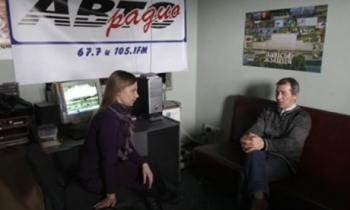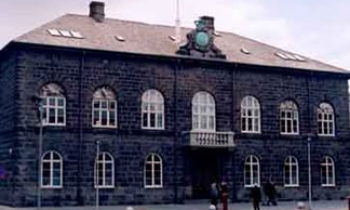In recent years, some Christians have been deeply offended by modern "art" that pictures Jesus's face on the lid of a "toilet altar." That has a Crucifix immersed in urine or offers a picture of the Virgin Mary smeared with elephant dung. Some see such images as a blasphemous affront to faith and an attack on believers.
But the American and British artists who produced these images were free to put them on display, and they have been widely reproduced.
Freedom of expression in Canada and other democracies is a cherished, fundamental right. And being free, means being free to challenge, provoke and even offend.
That is the context in which Canadians must consider the fury that has erupted across the Muslim world after the publication of a collection of "blasphemous" caricatures of the Prophet Muhammad in Denmark's Jyllands-Posten newspaper, and reprinted elsewhere. The Qu'ran bans depictions of the Prophet.
These cartoons not only show him, but crudely mock him. One has Muhammad wearing a turban bomb. Another has him wearing the crescent of Islam as devil's horns.
The images have sparked one of the ugliest and, possibly, most hypocritical cultural clashes in years.
Yesterday Muslims in many countries staged huge protests after Friday prayers, demanding the Danish government punish the newspaper for its "Islamophobic" and "racist" cartoons. Ambassadors have been recalled. There have been bomb threats. Attacks on diplomats. An economic boycott. Death threats.
While many Canadians will sympathize with Muslim dismay at this shabby treatment of the Prophet, this reaction is out of proportion to the offence. Those living in Western, secular, democratic societies have long since moved away from the days when blasphemy invited stoning.
That said, the cartoons are problematic for another reason.
They bait Muslims and risk inciting hatred by equating Islam with terror and evil. They would likely withstand a legal challenge here, because the courts wisely give wide latitude to political commentary. Papers are free to air a variety of opinion.
Even so, some of the cartoons are gratuitously offensive. The Star would not have published them, although we affirm our right to do so.
And sadly, there is hypocrisy all around in this melodrama.
Many Muslims who are angry come from Arab states where the press routinely prints cartoons linking the Jewish faith to violence. Recent ones have made a Star of David into a terrorist's face, and have shown an orthodox Jew blowing flame from a ram's horn to scorch an Islamic shrine. Where is the outrage at these images by people who are upset by the caricatures of Mohammed?
By the same token, liberal democrats in Europe and elsewhere who fault the Arab press for invoking religion as a means to make a political point, are poorly placed trying to justify the Danish cartoons, which do the same thing.
Jyllands-Posten had a right to print them. Whether it was wise to exercise that right, is another matter.









